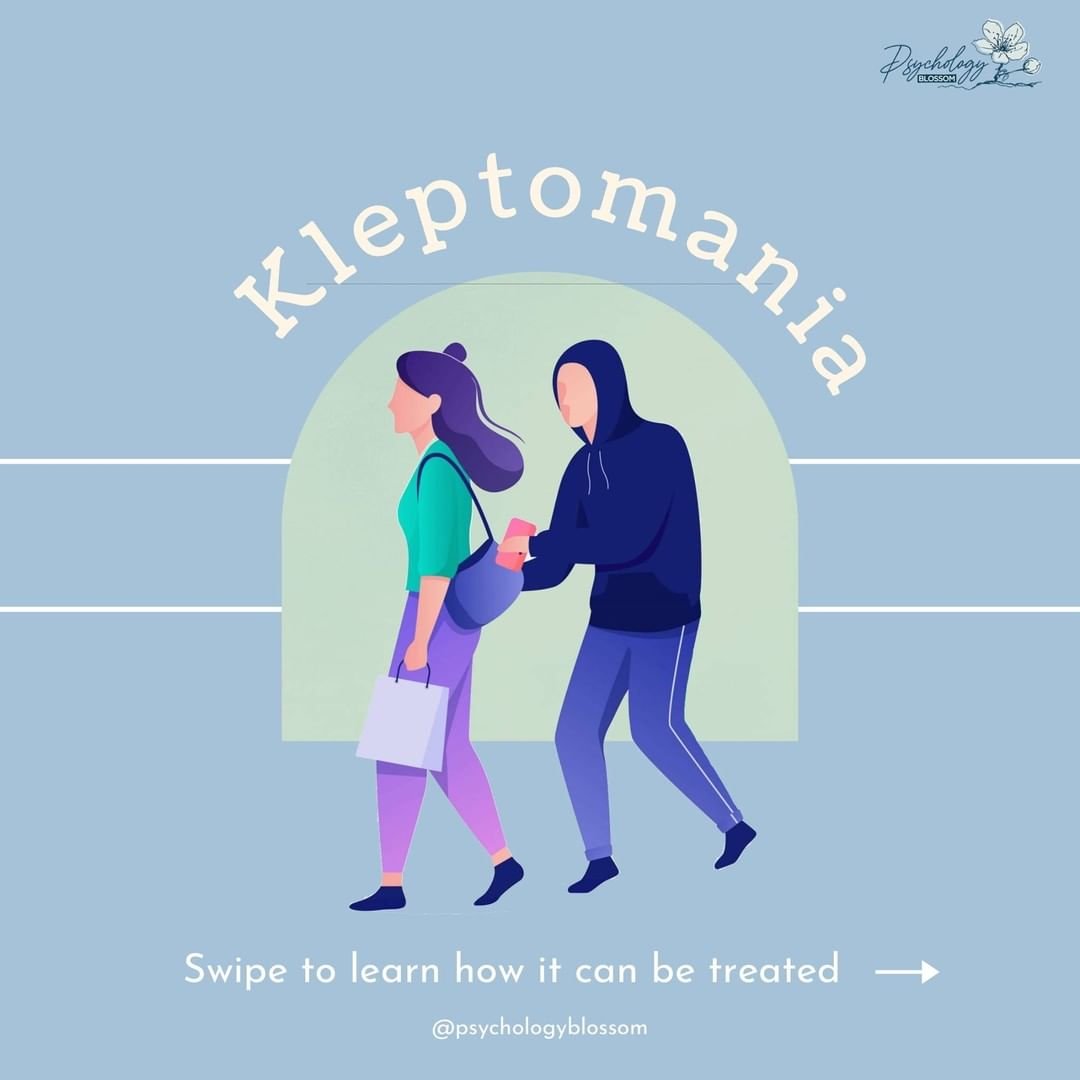Kleptomania is a complex psychological condition where individuals experience an inability to resist impulses to steal objects, even though the items usually have no personal monetary value or practical use. It falls under the category of impulse control disorders and often occurs alongside other mental health conditions such as anxiety, depression, and eating disorders. Those who struggle with kleptomania often describe the act of stealing as an uncontrollable urge rather than a conscious decision, making it very different from intentional theft or shoplifting.
Kleptomania VS Shoplifting/Theft
✽ Type of Items
Kleptomania: Items stolen are not for personal gain, revenge, or rebellion. They are often trivial, discarded, or unnecessary objects that provide no real benefit to the individual.
Shoplifting/Theft: Items typically have monetary or personal value, and the act is intentional, often driven by gain or material benefit.
✽ Prior to Act
Kleptomania: The act of stealing is unplanned, impulsive, and occurs when urges are triggered. The person often feels a rising sense of anxiety or arousal before committing the act.
Shoplifting/Theft: Often involves prior planning, deliberate execution, and sometimes collaboration with others. The motivation is typically financial or material gain.
✽ After Act
Kleptomania: Items may be discarded, hidden, donated, or even secretly returned. The act is rarely about possessing the item but rather about relieving internal tension.
Shoplifting/Theft: Items are used, sold, or consumed for personal gain. There is usually no remorse unless legal consequences occur.
Criteria in DSM-5
- Failure to resist urges to steal items that one does not need
- Theft is not motivated by anger, vengeance, or financial need
- Rising anxiety, tension, and arousal leading up to the theft
- Feelings of pleasure, gratification, or relief while stealing
- Subsequent feelings of guilt, shame, or remorse after theft
- Repetition of the cycle with recurring urges
Knowing Someone that May Have Kleptomania
- Approach them calmly and express concern for their well-being
- Avoid shaming, blaming, or accusing
- Highlight the risks of compulsive stealing (e.g. arrest, job loss, damaged relationships)
- Encourage seeking professional help, as kleptomania can be effectively treated with therapy
Treatment
Kleptomania is treatable with behavioural therapy, psychoanalytic psychotherapy, pharmacological interventions, or a combination of these. Cognitive Behavioural Therapy (CBT) is particularly effective for impulse control disorders, helping individuals understand their urges and adopt healthier coping mechanisms. At Psychology Blossom, our psychologists are trained to use CBT techniques to guide clients in resisting impulses and addressing underlying anxiety or emotional discomfort.
Techniques Used in CBT
- Covert Sensitization: Visualizing the act of stealing and its negative consequences to reduce the desire
- Imaginal Desensitization: Practicing mental scenarios where urges are resisted successfully
- Aversion Therapy: Pairing the urge to steal with mildly uncomfortable actions to weaken associations
- Alternative Sources of Gratification: Finding healthier outlets such as creative hobbies, sports, or mindfulness activities
Long-term management of kleptomania often includes therapy, lifestyle adjustments, and sometimes medication. Selective serotonin reuptake inhibitors (SSRIs) and mood stabilizers have been studied for their potential to reduce compulsive behaviours. However, therapy remains the core of treatment, as it equips individuals with the tools to handle stress, identify triggers, and develop lasting change. Early intervention and support from family members can also play a critical role in recovery. Those suffering from kleptomania should know that it is a recognised psychological condition and not a reflection of their moral character.
Additionally, joining support groups or seeking community resources may help individuals reduce feelings of isolation. Like other impulse control disorders, kleptomania benefits from a non-judgmental environment where the focus is on healing rather than punishment.
We recommend This Video to those who wants to learn more about Kleptomania.
